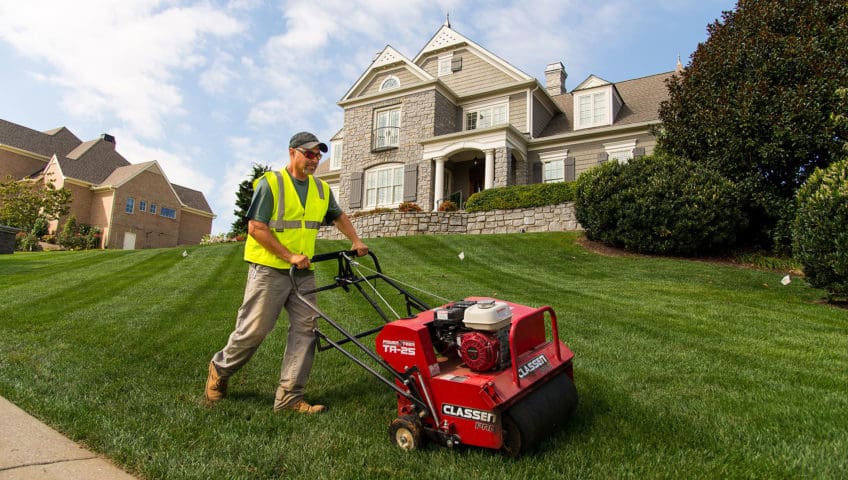
Debt is often a natural aspect of running your company, especially when you’re first getting started, but it is possible to operate as a debt-free landscape business.
Lawn Butler, based in Knoxville, Tennessee, has operated debt free since the company started, aside from two notes for larger equipment over their 20 years of business.
“It’s much easier to be debt free if you started off that way,” says Seth Kehne, owner of Lawn Butler. “If you’ve saved up enough for the first asset that you buy, then rather than making payments for that, you can be saving for another one.”
Kehne says there were two reasons why he decided to operate debt free. The first reason was because when he started out he wasn’t sure if this was the career path he wanted to pursue so he wanted to be able to have an easy exit. His second reason is due to a personal desire to be a good steward of his finances.
“If you have debt, then somebody else has the ability to have some type of control over you,” Kehne says.
Pro Cutters Lawnscapes, Inc., based in Conyers, Georgia, didn’t start out debt free, but decided to make a change when they were in debt close to $1 million.
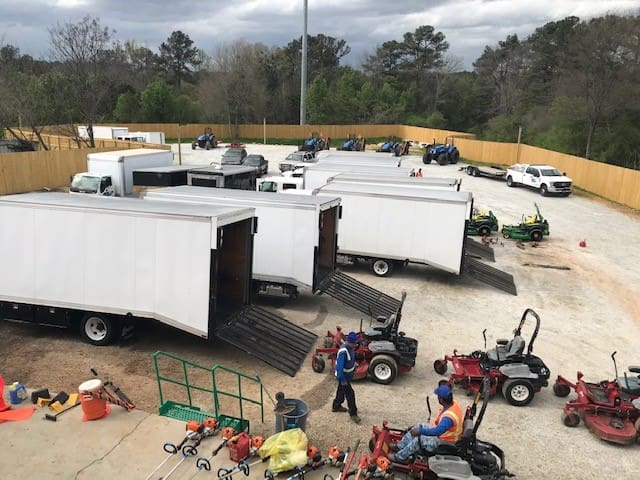
“At that time, we were just coming up on $1 million in annual revenue so as you can see that wasn’t good,” says Shawn Bromell, president of Pro Cutters Lawnscapes. “We all know that when you are a small business owner, the business’s debt equals your debt. Most banks will not give small businesses a loan, but they will be more than happy to give you a credit card, personal loan or let you use your house as collateral. And when you get bitten by the ‘growth’ bug, it’s easy to start thinking, ‘Well if I have this contract that pays this amount, I can afford a new truck and some new equipment!’ It can add up very quickly.”
She says the biggest pitfall is getting caught up in the desire to grow the business without running the numbers.
“By the time you pay for gas, insurance, payroll and equipment and you only make $10,000, what is the point?” Bromell says. “You will never be truly successful in business when you can’t get beyond breaking even or you’re making a very small profit. You will not be able to set aside money for emergencies, build a healthy business savings and ultimately invest.”
Bromell says they first realized they had a problem when every payday came around they had to call their customers and request the clients pay them.
“We finally got it that if we didn’t owe all this money, we could manage the business better,” Bromells says. “That meant turning in equipment and trucks we couldn’t afford. Beyond that, we started investing in books and podcasts that were focused on financial wellbeing and being debt free.”
Pro Cutters lined up their bills and began paying them off from the lowest to the highest.
The Challenges of Operating Debt Free
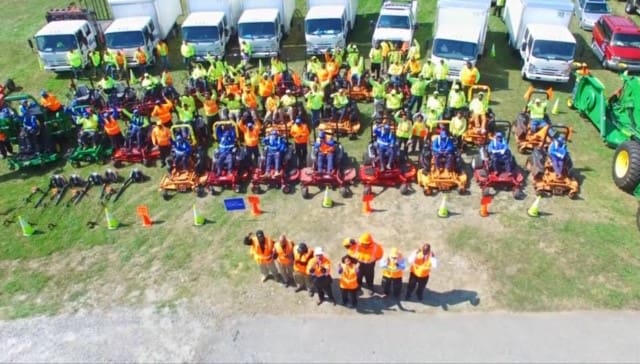
Operating debt free is not for the faint of heart, especially in a business where one piece of equipment can cost $50,000 and up. Kehne says operating debt free has made things more challenging for the business as you don’t buy the trucks or equipment you need sometimes because you don’t have the money.
“We use to buy used equipment, but now we buy almost all new,” Kehne says. “At the beginning, all we could afford is used.”
He says they will rent equipment until there is enough demand to warrant buying a piece of equipment.
Bromell says they used the business relationships they have built to figure out creative ways to use their equipment at a good price, without having to use a leasing company. She says they’d also ask gas station owners if they could work out deals where the crews gassed up in the morning and Pro Cutters would pay them a lump sum later.
“We also were benefiting the gas station because they began selling breakfast to our crews and making extra money themselves because of the partnership,” Bromell says. “Of course, this is nothing but a form of credit, but if we lost a major contract, as we had in the past, we would not be haunted by it. It also allowed us to keep good cash flow so we could operate without so much stress. The biggest thing though was making sure we only accepted contracts where we could actually make money.”
Pro Cutters had to cherry-pick opportunities so they could have cash flow upfront. Bromell says they have to be very strategic in their planning and disciplined enough to decline jobs if it moves them away from their core values.
“Now that we have no debt, we can honestly say the challenges we may face are a bit easier to handle knowing we don’t have payments looming,” Bromell says. “We feel a level of freedom that is truly amazing.”
Benefits of Being Debt Free
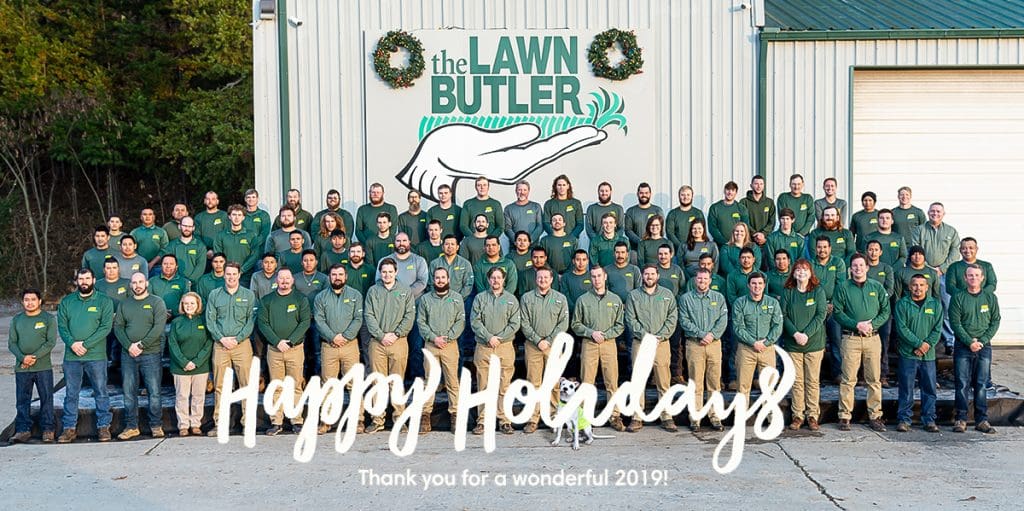
Kehne acknowledges that this route is harder, but it does have its benefits. Aside from not being indebted to others, Kehne says being a debt-free company is a great recruiting tool as many of his employees have worked for companies where their paychecks were uncertain.
“A lot of our team members really appreciate the security in our financials and that’s a big deal,” he says.
Bromell says operating debt free allows you to stop working from a place of fear. She says another benefit of being debt free is the ability to help people and your community.
“A person in debt will not establish a scholarship program for a local high school,” Bromell says. “A business that’s debt free is honored to be able to change so many lives.”
Is Being Debt Free Right for Your Business?
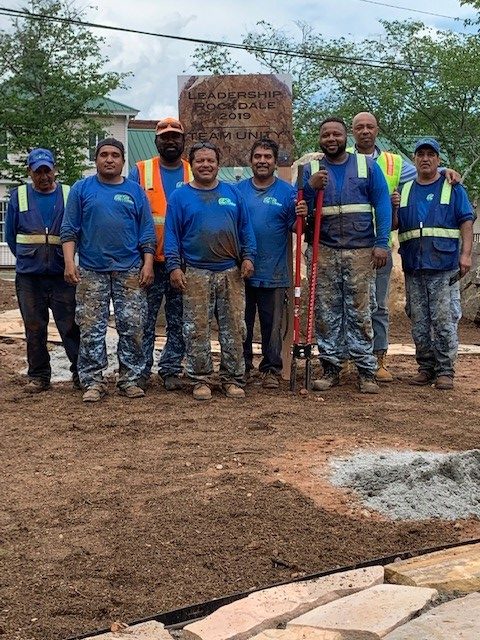
While it is harder to become debt free once your company has been running for a while, Kehne says it’s still possible. He says the business will have to pause their growth for a period as when they’re not growing it’s easier to make a better margin.
Kehne says it’s possible to still grow as a debt-free company, but the pace will be slower.
“I would be the first one to say that isn’t the greatest path,” Kehne says. “For our company and our team, everybody is on board with it and it’s part of our culture. I wouldn’t say it’s the best and I would argue that it’s not the most profitable. Strictly from a profitability standpoint, it’s better to take on debt.”
Neither Kehne or Bromell think operating with debt is wrong nor do they pass judgment on those who choose to run their business that way.
“Leasing is not a bad option when it comes to equipment because it allows you to turn over older equipment quickly for new equipment thus saving on costly repairs,” Bromell says. “The goal would be to make sure you have the payments well in advance of them becoming due. Being debt free is a choice and course of action we decided to take to better ourselves and build what we believe would be a stable and viable company. In terms of large purchases, we take the same approach in that we forecast and put away for large capital purchases or building improvements. ‘The race is not for the swift but for those that endure and are disciplined.’”

